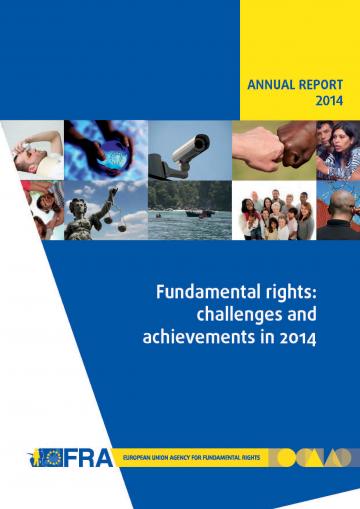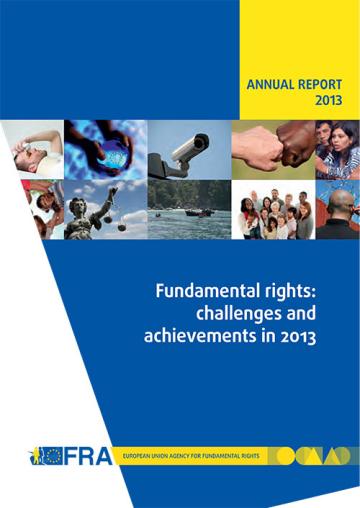
Fundamental rights: challenges and achievements in 2014 - Annual report
In 2014, the EU reassessed its strategy and priorities for the coming years. The new European Commission announced its 10 priorities, among which a new approach to legal migration into the EU was recognised as one of the key aspects of the Commission’s agenda on migration. Together with immigration, integration policies were identified as a crucial factor for creating inclusive societies. A new regulation on structural and investment funds that came into force in 2014 is a promising tool to help the EU move towards greater social inclusion and reduce discrimination and unequal treatment. The end of the transition period for the Framework Decision on Combating Racism and Xenophobia will allow the European Commission to launch infringement procedures against EU Member States that do not comply with the provisions of the framework decision. At the same time, in annulling the Data Retention Directive, the Court of Justice of the EU recognised privacy to be a vital right. The year closed with a celebration of the fifth anniversary of the Charter of Fundamental Rights, which is the cornerstone of rights protection for everyone in the EU.
FRA’s annual report this year examines fundamental rights-related developments in equality and non-discrimination; racism, xenophobia and related intolerance; Roma integration; asylum, borders, immigration and integration; information society, privacy and data protection; the rights of the child; access to justice including rights of crime victims; and the EU Charter of Fundamental Rights and its use by Member States.
 This year’s Focus section hones in on fundamental rights indicators – one of the tools that can be used to enhance the fundamental rights commitments of the EU and its Member States. Mainstreaming fundamental rights can help turn words into action, especially if linked to relevant indicators. The Focus thus examines how a rights-based indicator framework could support relevant actors in policy evaluation and design, thus consolidating Europe’s fundamental rights culture and helping to guarantee that fundamental rights are upheld in practice.
This year’s Focus section hones in on fundamental rights indicators – one of the tools that can be used to enhance the fundamental rights commitments of the EU and its Member States. Mainstreaming fundamental rights can help turn words into action, especially if linked to relevant indicators. The Focus thus examines how a rights-based indicator framework could support relevant actors in policy evaluation and design, thus consolidating Europe’s fundamental rights culture and helping to guarantee that fundamental rights are upheld in practice.
